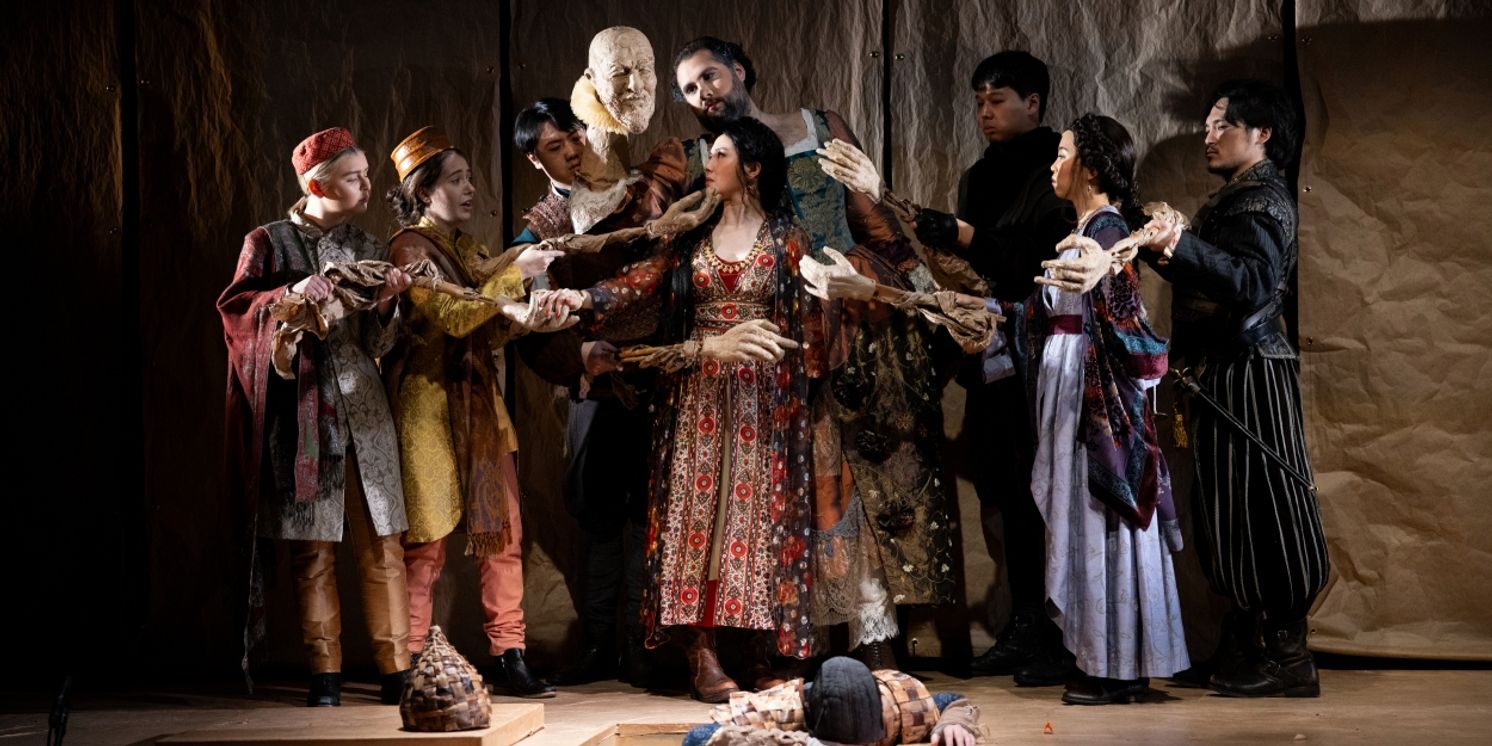Review: Juilliard's ERISMENA Goes for Truly Baroque with Game Cast under Heijboer Castanon
Cavalli Opera Highlights Shifting Passions in Episodic Drama Led by Conductor Stein

It’s always a joy to see the Juilliard Opera/Juilliard Historical Performance department perform in the intimate realm of the Rosemary and Meredith Willson Theatre, where the audience is up close and personal to the action on stage. Last week’s performances of Francesco Cavalli’s ERISMENA happily fell neatly into that category. Even with a libretto that’s had more lives than the proverbial cat, the work manages to weave its magic.
William Shakespeare died about the time the teenaged Cavalli arrived in Venice, in 1616, so I wonder how much the composer of ERISMENA—as well as the better known (and just-plain-better) LA CALISTO—might have been aware of the Bard of Avon’s body of work. For me, there were shades of “The Comedy of Errors” and “Twelfth Night,” along with some more generic Shakespearian notions, that seem to have found their way into the action of the opera.
Under the taut direction of Lisenka Heijboer Castanon and the baton of Avi Stein with his small period instrument ensemble, Juilliard415, (as well as the work of dramaturg Ligiana Costa), the well-schooled singers brought the confounding plot (or plots) into focus, bringing cohesion to the complex action in the English translation used here, which dates back to the 17th century.
I’m not sure whether the decision to perform the piece in English rather than the original Italian did it any favors—since rhythms usually work better with the original language--particularly since there were supertitles anyway. Nonetheless, most of the cast had great diction, making the titles unnecessary.
In the category of “It takes a village”, the key character of the aging King Eramante, whose vanity sets much of the plot into action, is not taken on by a single singer but is puppet-like. He's constructed from pieces built in the workshop under scenic and costume designer Julian Crouch. (The simple design with lighting by Mary Ellen Stebbins, along with the more elaborate costumes, were a triumph of economy.)
The elements were brought to life seamlessly by the excellent constituents of the cast, which included: bass Younggwang Park (Diarte), mezzo Tivoli Treloar (Erismena), baritone Dongwei Shen (Argippo), tenor Geun-hyeong Han (Orimeno), soprano Song Hee Lee (Aldimira), soprano Gemma Nha (Flerida), baritone Trevor Haumschilt-Rocha (Alcesta), mezzo Stephanie Bell (Erineo/Idraspe) and mezzo Kate Morton (Clerio). It was a brilliant conceit and it came off exceedingly well.
Besides joining together to play the king, the members of the troupe each had a role of their own, showing off their command of ornamentation—the cornerstone of the baroque style—and fine acting skills. For me, there were a few standouts (though I must say that I missed the lack of a single countertenor in the company for this era’s music).
In a part that seemed like a pants role at the start, only to turn into a woman by the end, the resourceful mezzo Treloar, in the title role, did a lovely job, whether as male or female character, with notable precision as the wounded warrior. Soprano Lee was gloriously silvery as Aldimira, the object of many an affection, including the king’s, while tenor Han’s Orimeno added just the right touch of humanity in the panoply of voices. Mezzo Bell did well by Erineo, well up to the part’s lower range, and melded well with Treloar in their brilliant duet.
In one of those “stand-back-and-let me-do-my thing” performances (or at least it seemed that way) that are guaranteed to tickle the fancy of audiences, the bearded baritone Trevor Haumschilt-Rocha played the nurse Alcesta, originally written for an alto. With his resonant voice and costumed in an elaborate gown, he seemed to be having as much fun as the listeners, as he bemoaned encroaching age and tried to keep some of the plot’s hoariest elements under wraps until the appropriate "reveal."
By the time all the plot threads were unknotted and the lovers united, the opera was at its finest and it became quite clear why Cavalli was considered as important as he was: captivating on one hand and having a lightning touch on the other.
Photo: The ERISMENA ensemble
Photo credit: Maria Baranova
Reader Reviews

Videos

